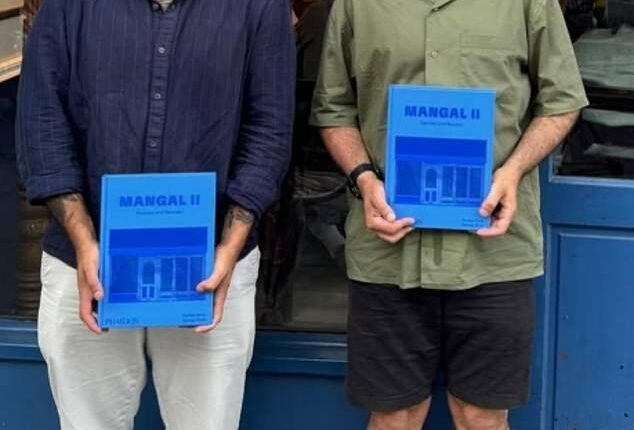The owner of a popular London restaurant has claimed that ‘insufferable’ and ‘entitled’ customers are costing him £1,000 a week in losses.
Ferhat Dirik, owner of Mangal 2 in Hackney, London, shared a newsletter earlier this month outlining a change in customer habits that’s costing his Turkish restaurant a pretty penny.
In the post, titled ‘Manners’, the owner wrote, ‘What happened? When did an unbearable percentage of the general dining public become such insufferable, entitled, unforgiving p****?
‘At which point did it become socially acceptable for the hospitality industry to become the sponge which soaks all the nation’s vomit; its punching bag?’
Dirik, who has worked in the family-run restaurant for 25 years, went on to explain the negative customer behaviour patterns that he’s spotted since he first started out on the dining floor at 14.
Among them was the claim that people are increasingly booking for a given number and then arriving in a smaller party size, which in turn can cost his business £1,000 a week, according to Metro.
The father-of-two explained, ‘Customers will book a table for, say seven people, and turn up as a four. There’ll be no correspondence prior to notify the restaurant, no warning.
‘They’ll arrive and very casually say ‘Oh, three people dropped out, sorry.’ M********, that’s not good enough.

Ferhat Dirik (pictured left), owner of London’s Mangal II, has claimed that ‘entitled’ customers are costing him £1,000 a week
Those two extra tables we cojoined, which could accommodate up to four more people, they’ve now just gone to waste.
‘Our customers spend an average of £65 per person here, you do the math. That’s £195 immediately down the drain, and a potential £260 had we known in advance and made the table/s available to book online to fill up prime location on a busy Friday night.
‘If you make a commitment with your circle to dine somewhere, make sure it’s with people you trust to not be flaky.
‘If something comes up and some can’t make it, let the restaurant know. It takes a single phone call/email. It’s rude, it’s inconsiderate, it’s financially damaging, and frankly, it’ll be the death of hospitality.’
It’s an occurrence that is costing the Mangal 2 owner a fair buck, which can reportedly reach heights of £1,000 per week.
Elsewhere in the post, the owner added five other ‘worrying’ trends that he’s spotted in recent times, including a rise in last-minute cancellations, ‘unforgiving’ reviews, more loud customers, and ‘many allergens’ to cater for.
He told Metro, ‘There is a mindset of wanting to hate wherever they eat. Obviously as a service worker you want to rectify it, but there is such a combative attitude.
‘A table that gets served their main before they do, would not have had starters or a simpler dish to prepare.

The restaurant owner also noted that people tend to be louder when dining out and aren’t afraid of leaving unforgiving reviews
‘And if they arrive and their table isn’t ready? Often the customers themselves are early, and we spend the rest of the shift trying to make up for the ‘bad’ start.’
Award-winning Mangal 2 is a known and celebrated restaurant in the area, and has been a staple for surrounding communities since it’s 1994 opening.
It comes after two Michelin-starred Indian restaurant Gymkhana introduced a new rule which slaps an £100 fee on every person in a dining party before they’ve even walked through the door.
The controversial mandate, introduced by the celeb hotspot restaurant in November, mandates that every guest visiting the site must pay the deposit of £100 before arriving – which then becomes their minimum spend for the evening.
It’s a rule that has now been replicated by eateries across the capital as the hospitality industry cracks down on no-shows, last minute cancellations, reservation resale websites and ‘reservation squatting’.
According to Chris D’Sylva – the owner of Michelin-starred Dorian, in Notting Hill – there’s been an uptick in the number of people who block up tables at multiple restaurants and then only show up for one reservation.
As a result, Mr D’Sylva told the Financial Times, he has been forced to impose a ‘slightly punitive’ £25 deposit that also helps ward off clout-chasing food influencers.
‘It’s something to drive away influencers that come and all they want to do is say that they were there and get the benefit of the social currency and post on their Instagram to the detriment of the business,’ he told the newspaper.

In the blog post, titled ‘Manners’, the father-of-two revealed six changes in customer habits that he’s noticed since he first started out
But collab-hungry influencers – looking to barter social media exposure for free food and drinks – are just as bad as bots that snap up the best tables so they can later be ‘scalped’ to the highest bidder, said Matt Tucker, the head of restaurant reservation platform Tock.
Three-figure minimum spend requirements have also begun to feature on Tock’s website – with diners looking to enjoy the Omakase experience at The Araki in Mayfair have to fork over £310 per head in advance of their meal.
But, Mr Tucker added, the idea isn’t to ‘gouge the guests or the customer in any way’.
‘This is just saying, ‘we are making a contract between the two of us that you’re going to show up and I’m going to provide you the best meal, the best service’,’ he continued.
Another restaurant and nightlife booking site Dorsia levies a £50 – £150 minimum spend charge for all the London eateries on its platform.
Its founder Marc Lotenberg revealed these amounts were calculated by ‘pricing algorithms’ based on average spends at the restaurant during different dining slots.
But whether it’s because of ‘reservation-squatters’, bots, content creators, or the restaurant industry’s soaring costs – with rent, wages, and food prices all sky-rocketing – one thing is for sure – dining out in London often means dropping serious cash.






